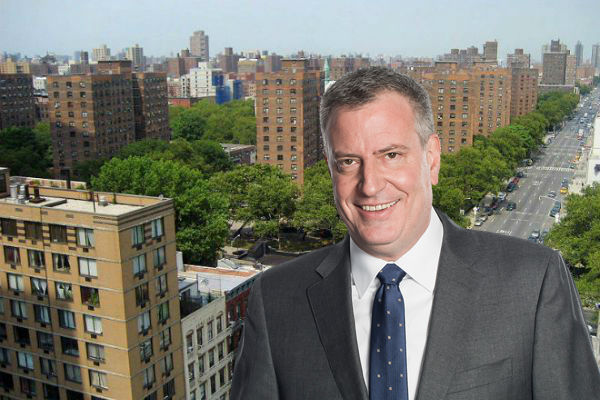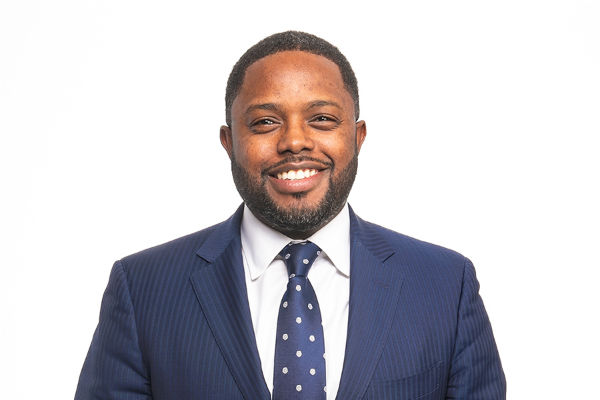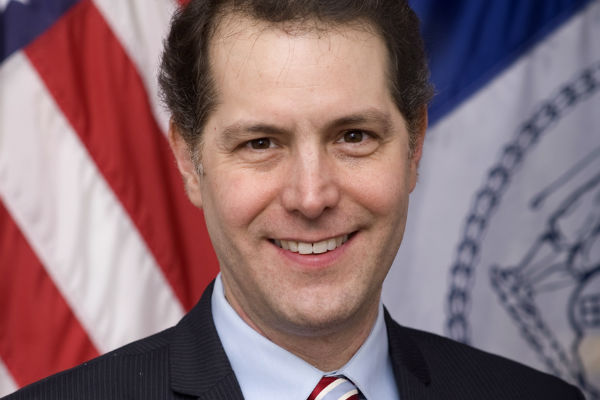
Today, Mayor Bill de Blasio released New York City’s recovery agenda, focusing on public health and social justice.
This agenda acknowledges the powerful link between the city’s economic health and the health of New Yorkers and sets a framework for a series of policies to address both.
“New York City is about to enter a transformational era,” said Mayor Bill de Blasio. “We know that our recovery begins and ends with healthcare, and we will again be a beacon to the rest of the world, rise to the challenge of setting forth a recovery that everyone can look to, and set forth a recovery plan that will work for everyone.”
This announcement will kick off a series of policy proposals, which are focused on four principles to make New York City stronger, healthier, and fairer:
- Continue the City’s momentum in fighting back COVID-19: We will continue the momentum in fighting COVID-19 by working with the private sector to expand lab capacity and deploy rapid, safe, and inexpensive testing, allowing our businesses to stay open and our economy to move forward. Last week, the City and its partners announced the opening of the Pandemic Response lab. Today we will launch a competition to design rapid, reliable and inexpensive testing for COVID-19. The City will be prepared to lead in the distribution of vaccines and treatments as medical advances become available.
- Make the City a hub for public health research: We will make New York Center a center of innovation for public health research, design, and practice. We will build new research and development facilities and forge collaboration among unlikely partners – doctors and nurses, academic researchers, industry innovators, health nonprofits and economic development community organizations, just as we did in early days of COVID-19. Because health security depends upon a highly trained workforce, we will create a Public Health Corps – a team of community health workers building trust and taking care of people in our hardest hit neighborhoods.
- Create high-quality jobs: We will encourage the creation of new, high-quality jobs that also help improve the City’s health.
- Continue making New York the fairest city in America: We will center service and action in neighborhoods that have carried the heaviest burden of economic and health inequities. The plan will include policy proposals around better use of public spaces, a more equitable transit system, and small business recovery, all of which are critical to a healthy and thriving city.
Mayor de Blasio announced a competition to accelerate the development and deployment of rapid COVID tests. Submissions from participants will be evaluated based on their performance and how well they meet the following criteria: ease of use; the delivery of quick and accurate results; scalability and cost; and clarity of communication with patients and health agencies. The City hopes to have Rapid Tests identified via the competition in the next several months.
More information can be found at http://edc.nyc/rapidtesting.
Last week, the New York City Economic Development Corporation (NYCEDC) launched the Pandemic Response Lab, a facility dedicated to processing COVID-19 tests within 24-48 hours for NYC Health + Hospitals. The lab is scaling up to process 20,000 tests per day by November, guaranteeing dedicated capacity to meet New York City’s most pressing needs.
As COVID vaccinations remain under development, the City is reviewing proposed vaccine prioritization frameworks and tailoring them to meet the City’s needs. When a vaccine is ready, New York City will have storage and distribution protocols in place – and, crucially, will ensure vulnerable residents know where and how to get it.
“COVID-19 demonstrates even more clearly the entwined relationship of economic and public health,” said Deputy Mayor for Housing and Economic Development Vicki Been. “Public health will guide our economic recovery in order to protect and strengthen the lives and livelihoods of New Yorkers. These investments and initiatives will ensure New York City’s economy bounces back faster, stronger, fairer, and healthier.”
“The pandemic reinforced the direct connection that exists between public health and the economy,” said James Patchett, President of New York City Economic Development Corporation. “For the City to not only recover but thrive, policies and investments that put public health front and center are key. It is how we will rebuild our economy while creating a stronger and more inclusive city for years to come.”
“The Health Department took immediate action during the COVID-19 emergency, and this strategy will lay the foundation for our future work,” said Health Commissioner Dr. Dave Chokshi. “Its focus on health recovery, and specifically closing the gaps driven by health inequities, will protect the lives of all New Yorkers. I want to thank the Mayor for prioritizing public health.”
“As part of our response to COVID-19, New York City has already done so much to transform our streets to make our City healthier, more sustainable, and more economically vibrant” said DOT Commissioner Polly Trottenberg. “In the months ahead and with the Mayor’s leadership, we will build on the successes of Open Streets, Open Restaurants, and now Outdoor Learning. Looking long-term, we will continue to aggressively meet New Yorkers’ demand for better bike and bus travel – safely advancing on the incredible progress that has made us a national model for recovery.”
“The global public health community anticipates long-term impacts of COVID-19 for generations to come, which is why this plan is so important,” said NYC Health + Hospitals President and CEO Mitchell Katz, MD. “As we continue to identify data-driven and research-informed policies, we are proactively creating a stronger system to help us recover and to address the long-term health impacts of this pandemic.”
“This plan is a guide for how we can beat this crisis by committing to investments in public health, affordable housing, small businesses and leading with inclusion,” said HPD Commissioner Louise Carroll. “I applaud the community of city workers, public and private leaders, along with everyday New Yorkers, who are positioning the city to make a strong recovery from this once in a lifetime challenge.”

“The recovery of NYC is dependent upon the lifeblood of the City, our small businesses,” said Jonnel Doris, Commissioner of the NYC Department of Small Business Services. “As we look toward the future, innovative solutions will help us provide equitable access to our resources and continue to support this diverse community while keeping all New Yorkers safe. This is the time for all of us to work together to safely reopen and recover.”
“These new standards are the foundation for how we will rebuild this city and make it stronger, safer, and better than ever before. The emphasis on public health invites opportunities to improve communities through targeted outreach and building neighborhoods that serve the needs of its citizens,” said NYC Parks Commissioner Mitchell J. Silver. “Throughout this public health crisis, Parks has become an extension of people’s homes and has helped to serve the neediest New Yorkers. As we look to the future, we are excited to play an active role in reimagining how our green spaces can serve as venues for health, recreation, and so much more.”
“Now more than ever, it is essential that the City’s land use review furthers New York’s equity and resiliency goals, including investments in neighborhoods hardest-hit by COVID-19. Through these lenses, DCP is prioritizing public and private projects that will bring clear benefits to everyday New Yorkers, such as affordable housing, jobs, open space, public health enhancements and resiliency. Together, we will chart a roadmap for the City to bounce back from this pandemic stronger than ever,” said Department of City Planning Executive Director Anita Laremont.
“A healthy urban environment is a critical step in the city’s economic recovery and these actions will all contribute to that objective. We particularly congratulate EDC and H&H on the new testing capacity that will encourage more people to come back to the office,” said Kathryn Wylde, President and C.E.O. of the Partnership for NYC.
“A healthy New York begins and ends with healthy New Yorkers – our city and economy cannot recover from this crisis unless our residents are well and feel safe. Increased testing, aid for our small businesses and improving transit options are key steps to getting New York City back on track. It’s time for every New Yorker to join together and do their part to ensure that our best days are ahead,” said Carlo A. Scissura, President and CEO, New York Building Congress.
“New York City will emerge from this crisis the way we have come back from each of our challenges in the past – by working together. Efforts like these are important to ensure the private and public sector continue to collaborate on long-term strategies that prioritize data-driven policymaking and equitable economic recovery that will keep the economic engine of our progressive City moving for years to come,” said James Whelan, President, Real Estate Board of New York.
“I applaud Mayor de Blasio’s new initiative to work with the private sector to assist in pandemic response and strengthen links between the city’s economic health and the health of New Yorkers,” said Senator Roxanne J. Persaud. “As a member of the New York State Senate’s Committee on Commerce, Economic Development, and Small Business, the announced public/private partnership proposals focusing on cutting the red tape for restaurateurs and local entrepreneurs, and the expansion of COVID-19 testing and lab capacity are a welcomed strategy to assist New Yorkers in my Senatorial District and across the City as we recover from the fiscal aftermaths of this pandemic.”
“I commend the mayor for realizing and implementing measures that will assist in returning vitality to our city,” said Assembly Member Latrice M. Walker. “As we all know the more economically sound every community is the more stabilized they become. Taking note that small businesses are the backbone of our city is imperative to our return. Equally as important to opening our economy is keeping it open, and that will be done in part by testing and producing rapid results. We have brought our positive test results down by working together and we will continue to work together to make New York City and State stronger during these unprecedented times.”
“Citywide availability of rapid and accurate COVID-19 tests is essential to our city’s small-business and school reopening plan,” said Assembly Member Rodneyse Bichotte. The mayor’s long-term recovery plan will help ensure that New Yorkers can regain their economic footing while protecting our most vulnerable neighborhoods and populations from future waves of the virus. We must continue to adapt to this situation, and rapid testing is not only an important but necessary step forward for our city.”
“The world’s entrepreneurs and businesses need to know New York City is opening for business and we are focused on commencing New York City’s long-term recovery from this pandemic and its economic fallout,” said Council Member Ben Kallos. “In order to move this recovery along quickly and equitably, we must build and maintain a robust Covid-19 testing infrastructure, and that is exactly what the new Pandemic Response Lab will do. Teaming up with the private sector, our City will have a better chance at recovering faster while centering efforts on bringing back small businesses that sustain our uniquely diverse neighborhoods. Thank you to Mayor Bill de Blasio and to the Economic Development Corporation for their efforts and commitment to making our City better than ever before.”

“The failure of our national leadership during the pandemic has repeatedly forced New York City to fend for itself – requiring us to build up our own capacity in manufacturing and testing when the federal government is MIA,” said New York City Council Health Committee Chair Mark Levine. “But this crisis has also created an opportunity to grow public health and life sciences sectors as critical jobs creators in New York. To achieve a truly just economic recovery in our city, we need to continue to invest in the health and well being of all New Yorkers. Our economic recovery and health recovery are explicitly intertwined. I applauded the City for building on the work we have already done in a way that will strengthen us for years to come.”
“As our businesses, offices, restaurants, and schools continue to reopen their doors, we must use every tool in our toolbox to renew and sustain economic recovery in New York City,” said Council Member Paul Vallone, Chair of the Economic Development Committee. “Cutting red tape to better support our small businesses and restaurants, strengthening our COVID-19 testing deployment, and developing and investing in our public health workforce are three important steps our city can take right now to safeguard both the health of New Yorkers and the health of our economy.”
“Mayor Koch once said, ‘New York is where the future comes to audition.’ If the future of pandemic response exists – it surely lives here in New York City,” said Cheryl G. Healton, DrPH, Dean of New York University’s School of Global Public Health. “There is no doubt that both the city and state have done exemplary jobs from a public health perspective to take us from an epicenter of the pandemic in the spring to where we are in the fall with sustained lows. We must remain vigilant, but New York is now a global example to be emulated – one of firm but flexible action by public officials, guided by science and a remarkably resilient public.”
“The NYU School of Global Public Health commends the Mayor for including in his economic recovery plan new, innovative efforts to expand coronavirus testing in NYC, the foundation for successfully identifying, containing and preventing coronavirus infections,” said Andrew Goodman, MD, MPH Clinical Professor NYU School of Global Public Health. “We also look forward to contributing to discussions around transformational policies and programs to address the underlying drivers of COVID-19-related health disparities: racism and community conditions where people live, work, and play.”
“Continuing the thoughtful and deliberate approach to reopening New York is critical for sustaining both the health of the public and our economic health since these two factors are so closely intertwined,” said Judith A. Salerno, MD, MS, President, The New York Academy of Medicine. “A robust COVID-19 testing program, which New York has led throughout the pandemic, is a critical element along with other sensible public health measures to build the data by which individuals, health systems, and policymakers can make informed decisions. We need these data to keep moving forward together in good health.”
“The Fund for Public Health in NYC is proud to work closely with the mayor and the NYC Health Department to help make our city stronger and healthier,” said Sara Gardner, executive director of the Fund for Public Health in NYC. “COVID has laid bare the inequities that still challenge our city’s health and spirit. We must work collaboratively to strengthen our public health systems and infrastructure, which are foundational to our ability to thrive. We wholeheartedly support this renewed commitment and focus on health as a key piece of NYC’s recovery plan, and look forward to being a part of it.”
“This is an important, open set of standards. The city has defined the properties for optimal rapid tests in line with FDA’s guidance, providing clear benchmarks that competition participants can aim to meet. Broader use and reporting of rapid testing and tracing will increase New York City’s ability to manage COVID-19,” said Jeffrey Shaman, PhD, Professor of Environmental Health Sciences, Columbia University Mailman School of Public Health.
“Having been designated a COVID-only hospital during the height of the pandemic, we believe strongly that enhanced and more widely available diagnostic and surveillance testing is critical to prevent further of the spread of the virus,” said SUNY Downstate Health Sciences University president Wayne J. Riley, M.D. “More extensive widely available testing is clearly needed in Brooklyn and in New York City’s other most vulnerable communities who have borne the disproportionate impact of this pandemic.
“The Mayor’s Office, NYCEDC and NYC Health + Hospitals are providing just the right prescription for what New York City needs to deal with the ongoing COVID-19 pandemic—careful attention to data-driven decision making, through the work of the Testing Innovation Council and an extraordinary internal team,” said Robert B. Darnell, M.D., Ph.D. Heilbrunn Professor and Senior Physician, The Rockefeller University, Investigator, Howard Hughes Medical Institute and Founding Director & CEO Emeritus, NY Genome Center.
“The city and the NYCEDC had the right vision and initiative to assemble an accomplished team of experts from multiple institutions with hundreds of years of combined experience in order to expand testing for SARS-Cov-2 for the city. The urgency of developing a reliable, safe, affordable COVID-19 test with an actionable turnaround time was unprecedented. We believe these efforts will aid in improving the lives of those living or working in the city and expedite the recovery of the NYC economy,” said Orly Ardon, PhD, MBA, Digital Pathology Scientific Manager at Memorial Sloan Kettering Cancer Center and member of the Testing Innovation Council.
“The creativity and inspiration that has driven New York’s economic growth pre-Covid were built on the vitality of our streets, the businesses that serve our communities, and our public spaces,” said Pratt Institute President Frances Bronet. “This city has an extraordinary density and complexity. Moving forward gives us the opportunity to plan safely how to use our streets and public spaces to both reignite that energy and ensure that the next wave of growth is equitable and inclusive.”
Photo credit: 1) Bill de Blasio. 2) Mark Levine. 3) Jonnel Doris.
Become a Harlem Insider!
By submitting this form, you are consenting to receive marketing emails from: Harlem World Magazine, 2521 1/2 west 42nd street, Los Angeles, CA, 90008, https://www.harlemworldmagazine.com. You can revoke your consent to receive emails at any time by using the SafeUnsubscribe® link, found at the bottom of every email. Emails are serviced by Constant Contact








